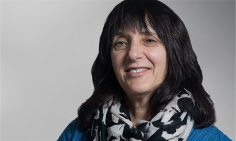CHILD abuse and other forms of child maltreatment are common and destructive.
The ongoing proceedings of the Royal Commission into Institutional Responses to Child Sexual Abuse along with the national family violence agenda, are spearheading change in our awareness and attitudes to this trauma.
Trauma is an experience of real or perceived threat arising from single or repeated adverse event/s. Such trauma generally involves abuse of power, betrayal of trust, fear and a sense of helplessness and confusion.
When trauma is interpersonal it is especially damaging. When it is repeated and extreme, occurs over a long time, and is perpetrated in childhood by the very people charged with a child’s care, it is called complex trauma.
It is important to differentiate complex trauma from “single incident” trauma, where the latter describes one-off events in adulthood such as a physical or sexual assault, or a natural disaster such as flood or fire.
Complex trauma requires different treatment responses.
Many survivors of complex trauma show remarkable resilience and manage well. However, many are left struggling day to day with their emotions, relationships and sense of who they are and where they fit in the world.
According to the ACE study in the US (the largest longitudinal study of adverse childhood experiences ever undertaken), such events are “vastly more common than recognized or acknowledged”. They powerfully impact the mental and physical health and wellbeing of individuals “a half-century later” and, without intervention, they cause “long-term disease, disability, chronic social problems and early death”.
This is because strategies adopted to cope with overwhelming childhood experiences, such as smoking, substance abuse, overeating and physical inactivity, become risk factors for physical health problems later on.
In February of this year, the national organisation, Adults Surviving Child Abuse (ASCA), released an economic report — The cost of unresolved childhood trauma and abuse in adults in Australia — which outlined the urgent need for informed responses to unresolved childhood trauma that is highly prevalent in the general population.
The groundbreaking report builds on ASCA’s 2012 “Practice guidelines for treatment of complex trauma and trauma informed care and service delivery”, which set the standards for clinical and service practice.
Research findings from both reports confirm that people who have experienced even extreme early life trauma can recover.
So what is the role of doctors in helping to improve the lives of Australians directly affected by childhood trauma? What can practitioners do to identify those impacted and provide them with the tools, resources and referral pathways they need to find a path to health and wellbeing?
The prevalence of complex trauma, particularly from childhood, is such that, every day, doctors are seeing a high number of patients who have diverse and sometimes medically unexplained symptoms or comorbid diagnoses.
Many of our most challenging health problems are the result of compensatory behaviours such as smoking, overeating, and alcohol and drug abuse. While damaging to health in the longer term, such behaviours often provide immediate partial relief from emotional problems caused by traumatic childhood experiences.
It is important for all practitioners to be aware that past and/or present trauma may underlie some diverse presentations of their patients and be alert to its effects, in the knowledge that trauma becomes compounded over time and its impacts become cumulative.
Primary care practitioners are in a unique position to help patients feel safe and build the trusting environment that can enable disclosure. The response to any disclosure of overwhelming experiences — both in childhood and in adulthood — is critical.
This means that when engaging with all patients, it is important to keep the issue of trauma on the radar. It is also important to practise from a trauma-informed perspective that incorporates the core principles of safety, trustworthiness, choice, collaboration and empowerment.
While direct screening for trauma requires specialist training, all patients benefit from trauma-informed physicians who are aware of the impacts of trauma, and of the resources, tools and referral pathways, which optimise safety and the possibilities for recovery.
Help and support is available from the ASCA professional support line on 1300 657 380, 9 am – 5 pm Monday-Sunday. Additional resources and information regarding education and training are available at www.asca.org.au
Dr Cathy Kezelman AM is the president of Adults Surviving Child Abuse and practised as a GP for 20 years.

 more_vert
more_vert
It is now considered beyond doubt that childhood trauma, whether sexual, emotional or physical dramatically lowers the bar for subsequent development of chronic pain in adulthood. The mechanisms by which this occurs are complicated and being actively researched, but it is beyond serious argument that the link exists and is causal.
In an Emergency Department in the mid 1970s, adolescent girls with self harm were often treated unkindly. Wrist cutting or overdoses were regarded as attention seeking behaviour. Gradually and with the help of marvellous social workers, we came to realise that almost 100% were victims of sexual abuse and our attitudes changed. There was not a great deal that we could do for them, but empathy, kindness, and such appropriate referrals as we could find went some way. Certainly the rate of re-presenting dropped. We had made progress of some degree.